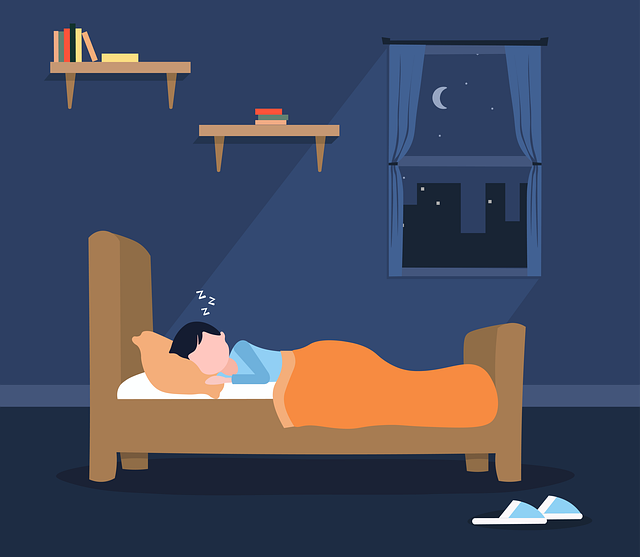Melatonin, while popular for treating insomnia, has variable safety levels based on age, health, and tolerance. Exceeding recommended dosages (0.3-1 mg for short-term use, up to 10 mg or more for some individuals) can cause adverse effects like grogginess, headaches, and anxiety. Those with pre-existing conditions or taking other medications should consult healthcare professionals before using melatonin supplements to avoid toxicity and ensure safe treatment.
Melatonin, a hormone naturally produced by our bodies, has gained popularity as a sleep aid. While it’s generally considered safe, understanding its dosage limits is crucial to avoid potential risks. This article delves into the science behind melatonin and its effects on the body, explores factors influencing safe limits, and recognizes the risky intake levels that may cause harm. By understanding how much melatonin is dangerous, you can make informed decisions about its use.
- Understanding Melatonin and Its Effects on the Body
- Factors Influencing Safe Dosage Limits
- Recognizing Risky Melatonin Intake Levels and Potential Dangers
Understanding Melatonin and Its Effects on the Body

Melatonin is a hormone naturally produced by our bodies, primarily by the pineal gland, to regulate sleep-wake cycles and promote healthy sleep patterns. It plays a crucial role in synchronizing our internal clocks, making it an increasingly popular supplement for individuals dealing with insomnia or disrupted sleep schedules. However, like any substance, melatonin has potential risks associated with its use, especially when doses exceed recommended levels.
Understanding how much melatonin is dangerous involves recognizing its diverse effects on the body. While small amounts can help reset circadian rhythms and improve sleep quality, excessive intake may lead to adverse reactions such as grogginess, headaches, and even anxiety. Research suggests that how much melatonin is dangerous varies from person to person, depending on factors like age, health status, and individual tolerance. Therefore, it’s essential to consult healthcare professionals before incorporating melatonin supplements into your routine, especially when dealing with sleep-related issues, to ensure safe and effective use without exceeding risky dosage limits.
Factors Influencing Safe Dosage Limits

Melatonin dosage safety is influenced by several factors, including age, weight, overall health, and individual tolerance. While melatonin is generally considered safe for short-term use, how much melatonin is dangerous varies significantly from person to person. Young adults and children may be more susceptible to melatonin’s side effects, even at lower doses, while older adults might require higher amounts to achieve the same results. Individuals with pre-existing health conditions, such as hormone disorders or seizure disorders, should exercise extra caution and consult their doctor before taking any melatonin supplement.
Additionally, the form of melatonin can impact dosage safety. Different forms, like fast-release or extended-release tablets, have varying absorption rates and duration of action. Using the correct dosage for your specific needs and following product instructions carefully are crucial to avoiding melatonin toxicity. Overconsuming melatonin can lead to side effects like sleepiness, headaches, digestive issues, and in severe cases, elevated risk of accidents due to impaired coordination and judgment.
Recognizing Risky Melatonin Intake Levels and Potential Dangers

Melatonin, a hormone often used as a sleep aid, is generally considered safe in recommended dosages. However, like any supplement, exceeding suggested limits can lead to dangerous side effects. How much melatonin is dangerous varies from person to person, depending on factors such as age, health status, and individual sensitivity.
While small amounts (0.3-1 mg) may be safe for short-term use, consistent intake of higher doses (up to 10 mg or more) can result in serious risks. These include grogginess, headaches, increased appetite, and even more severe consequences like low blood pressure, rapid heartbeat, and confusion. Additionally, long-term melatonin use may disrupt natural sleep rhythms and potentially interact with other medications. Therefore, it’s crucial to consult a healthcare provider before taking melatonin supplements, especially for extended periods or at high doses, to ensure safe and effective use.
While melatonin can offer benefits for sleep and health, understanding its risky dosage limits is crucial. Factors like age, medical conditions, and medication interactions play a significant role in determining safe levels. Intaking melatonin beyond recommended doses may lead to adverse effects such as grogginess, headaches, and potential disruptions in hormone balance. As with any supplement, it’s essential to consult healthcare professionals before incorporating melatonin into your routine, especially when considering higher doses, to ensure you stay within safe boundaries and avoid dangerous melatonin intake levels.

